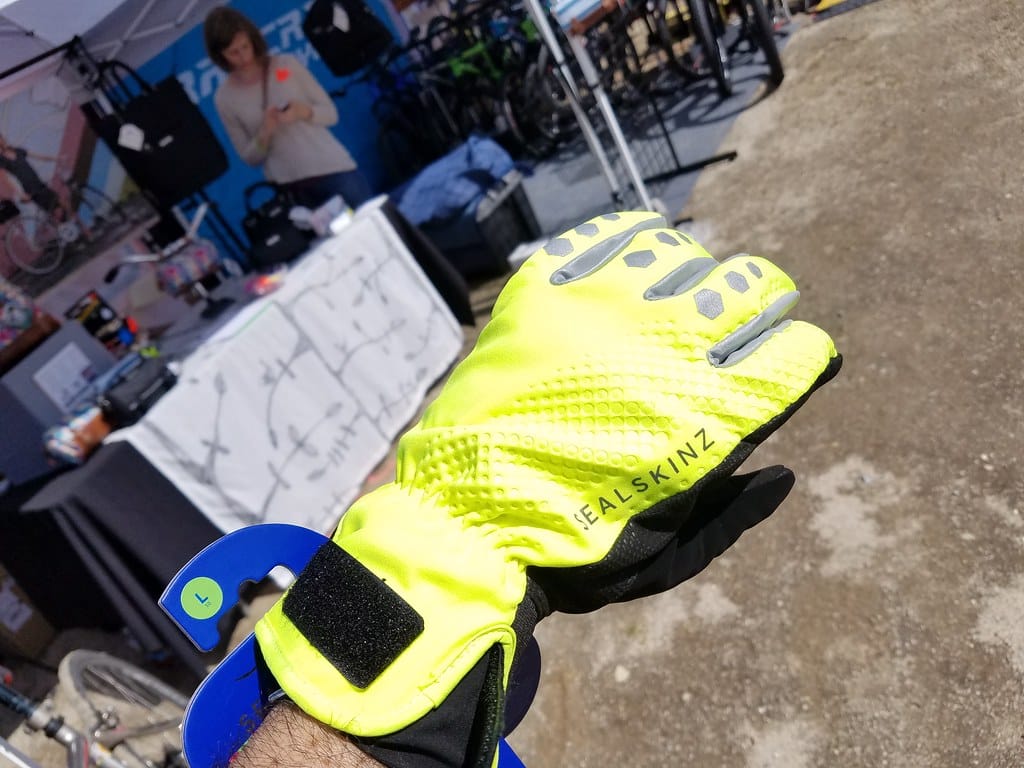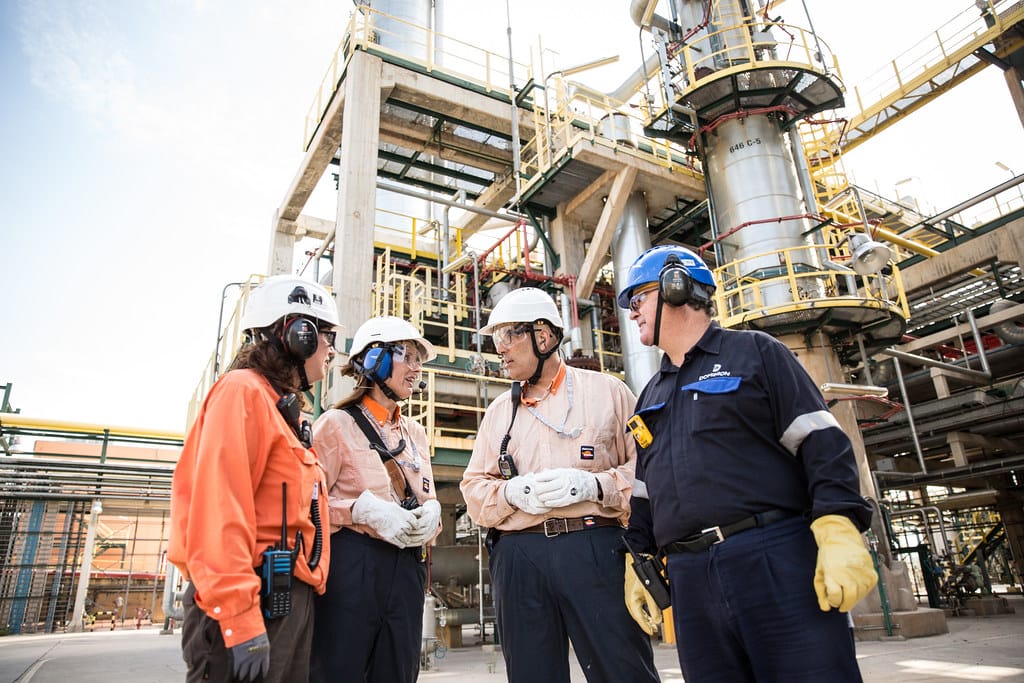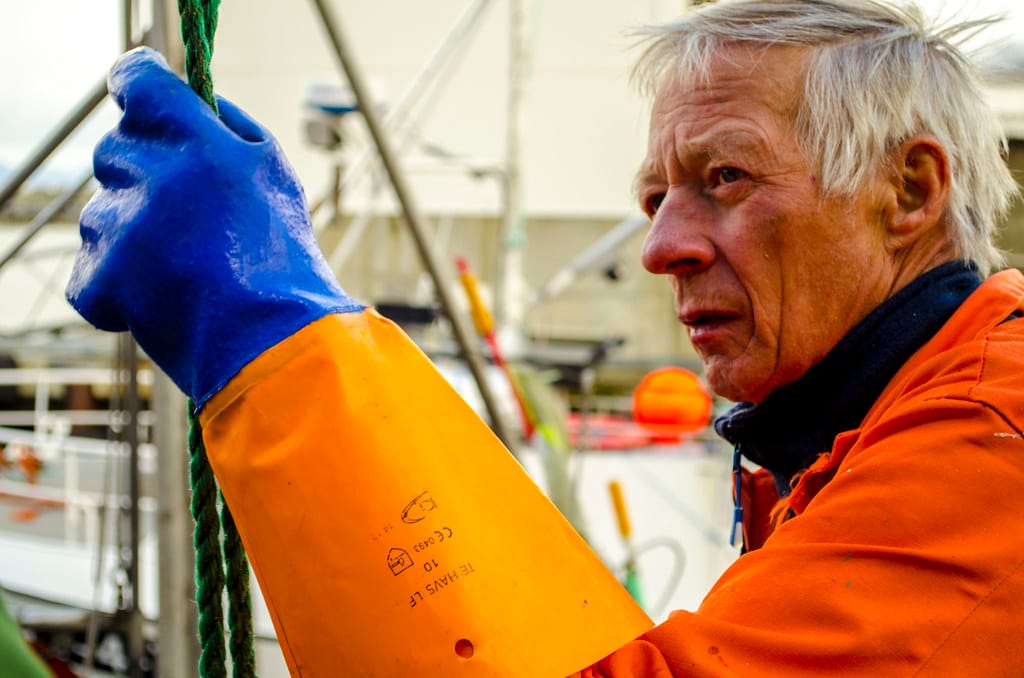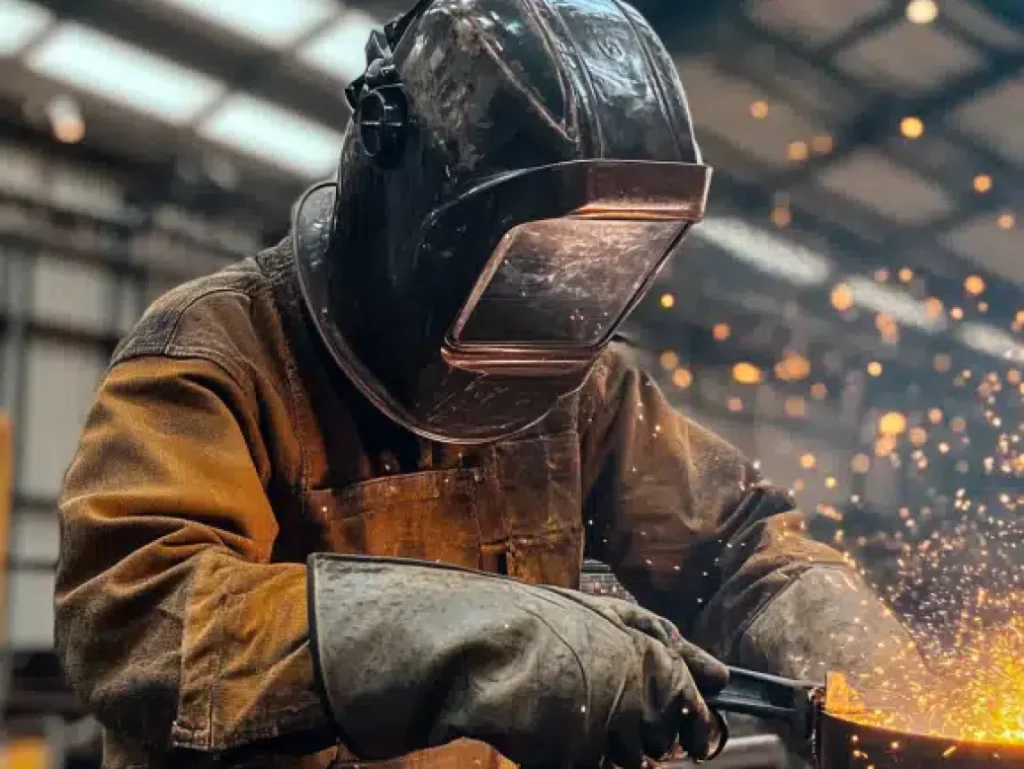
When it comes to flame-resistant (FR) clothing, not all compliance standards are created equal—and choosing the wrong one could mean the difference between meeting safety requirements… and facing penalties or injuries.
The two most common FR standards you’ll hear are NFPA 2112 and NFPA 70E. While they both involve flame resistance, they protect against different types of hazards and apply to different industries.
If you’re responsible for sourcing or specifying PPE, this is your guide to understanding the difference—and knowing exactly what your team needs.
What Is NFPA 2112 and Why It Matters
NFPA 2112 is the U.S. standard for Flame-Resistant Garments for Protection of Industrial Personnel Against Flash Fire, created by the National Fire Protection Association (NFPA).
Key facts:
- Focuses on flash fire hazards—short-duration, high-temperature fires caused by flammable gas, vapor, or dust
- Often occurs in oil & gas, petrochemical, and chemical manufacturing industries
- Requires garments to be tested and certified by a third-party lab
- Includes criteria like:
- Self-extinguish in under 2 seconds
- <50% body burn in mannequin test (ASTM F1930)
- Resistance to heat shrinkage and melting
- Thermal protective performance (TPP) value ≥6
✅ Bottom line: If your team is exposed to flammable vapors or flash fire risk, NFPA 2112 compliance is non-negotiable.
What NFPA 70E Requires for Electrical Work
NFPA 70E is the standard for Electrical Safety in the Workplace. It specifically addresses arc flash hazards—the thermal release that occurs during an arc fault in electrical systems.
Key requirements:
- Applies to electrical workers, including electricians, maintenance personnel, engineers
- Focuses on incident energy exposure (measured in cal/cm²)
- Defines PPE Categories (CAT 1–4) based on energy level
- Requires FR clothing with minimum Arc Thermal Performance Value (ATPV)
- Garments must meet ASTM F1506, not NFPA 2112
Common use cases:
- Substations
- Electrical panels & switchgear
- Industrial automation systems
- Utility fieldwork
✅ Bottom line: If your crew works on energized electrical equipment, you need NFPA 70E + ASTM F1506 compliant gear.
ASTM F1506 and Additional Fabric Standards
ASTM F1506 is the performance specification for flame-resistant textiles used in arc flash PPE. It’s often required by NFPA 70E and applies to the fabric level (not the finished garment).
It includes:
- Fabric must not ignite, melt, or drip
- Must meet minimum arc rating based on job task
- All garments must be labeled with:
- Arc rating (ATPV or EBT)
- Compliance with ASTM F1506
- Manufacturer info and care instructions
Summary:
| Standard | Applies To | Hazard Type | Garment/Fabric | Common Industries |
|---|---|---|---|---|
| NFPA 2112 | Finished garment | Flash fire | Full system | Oil & gas, chemical plants |
| NFPA 70E | Electrical PPE | Arc flash | Requires ASTM F1506 fabric | Electrical utilities, industrial maintenance |
| ASTM F1506 | Fabric | Arc flash | Textile spec | Worn under NFPA 70E framework |
How to Read FR Garment Labels and Certificates
If a garment claims compliance, it should have a label or tag that includes:
- Manufacturer name
- Certification body (e.g., UL for NFPA 2112)
- Standard(s) met (NFPA 2112, ASTM F1506, NFPA 70E)
- Arc rating (in cal/cm² for arc flash gear)
- Size, date of manufacture, and care instructions
Sample label checklist:
✅ “Meets the requirements of NFPA 2112 (Flash Fire)”
✅ “ASTM F1506 Compliant, ATPV 8.7 cal/cm² (CAT 2)”
✅ “Certified by UL / SEI”
✅ “Do not use bleach. Wash warm. Tumble dry low.”
⚠️ Warning: Avoid garments that say “FR” but don’t list a specific standard. “FR-like” clothing may not protect against real hazards.
Differences in Arc Flash vs. Flash Fire Protection
Here’s a quick breakdown of how these two hazards compare:
| Factor | Arc Flash | Flash Fire |
|---|---|---|
| Duration | <1 second | 3–10 seconds |
| Heat Source | Electrical energy | Combustion (gas, vapor, dust) |
| Risk Level | Sudden, explosive | Rapid ignition + fire spread |
| Standard | NFPA 70E + ASTM F1506 | NFPA 2112 |
| Garment Focus | Thermal shielding + arc rating | Full-body burn resistance |
✅ Don’t mix them up: An arc-rated shirt may not meet flash fire standards, and vice versa.
When to Choose NFPA 2112 vs. NFPA 70E Gear
It depends on the job. Here’s a simple guideline:
| Job Role | Required Standard |
|---|---|
| Electrician working near switchgear | NFPA 70E + ASTM F1506 |
| Refinery worker near flammable vapor | NFPA 2112 |
| Welder near both fire + electrical hazard | BOTH (dual certified) |
| Wind turbine maintenance (high voltage + outdoors) | NFPA 70E, CAT 2–3 gear |
If your jobsite includes both flash fire and arc flash risks, look for dual-certified garments that meet both NFPA 2112 and ASTM F1506.
Conclusion
Choosing the correct FR standard is more than a box-checking exercise—it’s about protecting your workers from the specific dangers they face every day.
✅ If the hazard is electrical arc flash, go with NFPA 70E + ASTM F1506.
✅ If it’s combustible flash fire, NFPA 2112 is your standard.
✅ And if it’s both—choose gear that covers both.
Need help understanding certification labels or selecting compliant FR garments for your industry? I can help you match standards to real-world work zones—so your team stays safe, protected, and regulation-ready.
📩 Contact: [email protected]
🌐 Visit: www.workwearsolutions.net
Zion Zhang
Recent Posts
 The Nigerian Agent Who Lost $50,000 on Fake Certificates — Then Came Back Stronger2025年10月20日Introduction In the global trade of PPE and industrial […]
The Nigerian Agent Who Lost $50,000 on Fake Certificates — Then Came Back Stronger2025年10月20日Introduction In the global trade of PPE and industrial […] How a Brazilian Trader Used $5,000 to Break into the PPE Market2025年10月20日Introduction In a world where industrial safety and […]
How a Brazilian Trader Used $5,000 to Break into the PPE Market2025年10月20日Introduction In a world where industrial safety and […] From First Order to Market Leader: A Ghana Distributor’s 3-Year Journey2025年10月20日In the fast-growing African PPE and workwear market, small […]
From First Order to Market Leader: A Ghana Distributor’s 3-Year Journey2025年10月20日In the fast-growing African PPE and workwear market, small […] Scaling Your Workwear Brand: From Local Agent to Regional Distributor2025年10月15日In the workwear and PPE industry, many businesses start […]
Scaling Your Workwear Brand: From Local Agent to Regional Distributor2025年10月15日In the workwear and PPE industry, many businesses start […] After-Sales Service & Customer Retention in the Workwear Business2025年10月15日In the global workwear and PPE industry, many suppliers […]
After-Sales Service & Customer Retention in the Workwear Business2025年10月15日In the global workwear and PPE industry, many suppliers […] Government & Corporate Contracts: Winning Large PPE & Workwear Deals2025年10月14日Government & Corporate Contracts: Winning Large PPE […]
Government & Corporate Contracts: Winning Large PPE & Workwear Deals2025年10月14日Government & Corporate Contracts: Winning Large PPE […]
CONTACT US
- Feel free to contact us any time. We will get back to you as soon as we can!
- +86-17330061805
